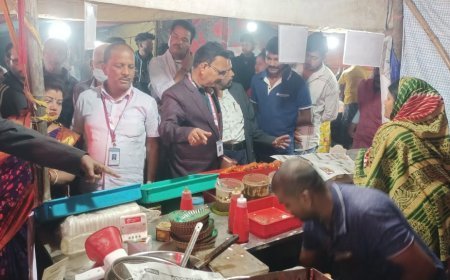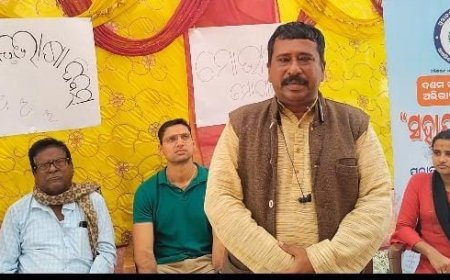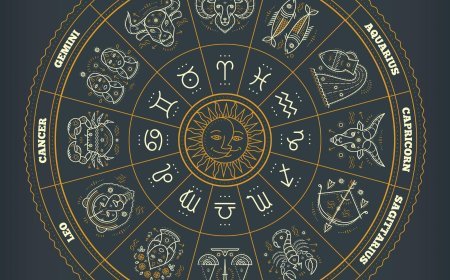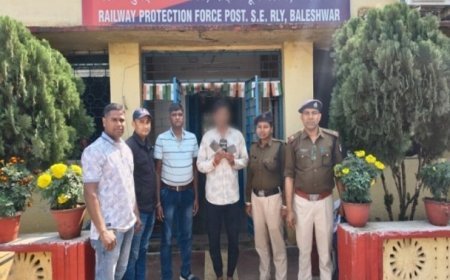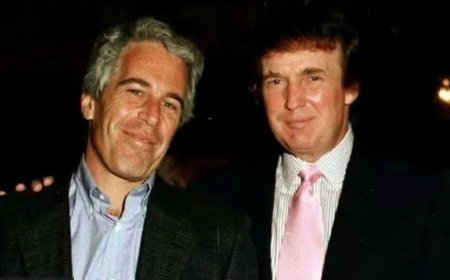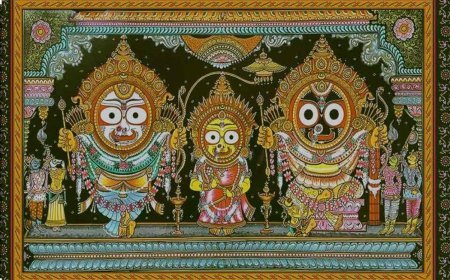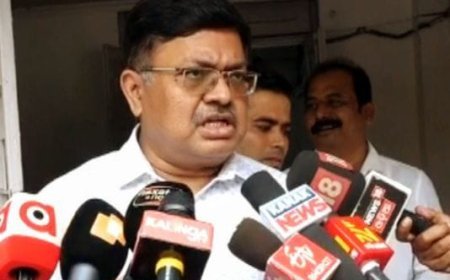Salutations to the Giants: Mahatma Gandhi and Lal Bahadur Shastri on Their Birth Anniversary
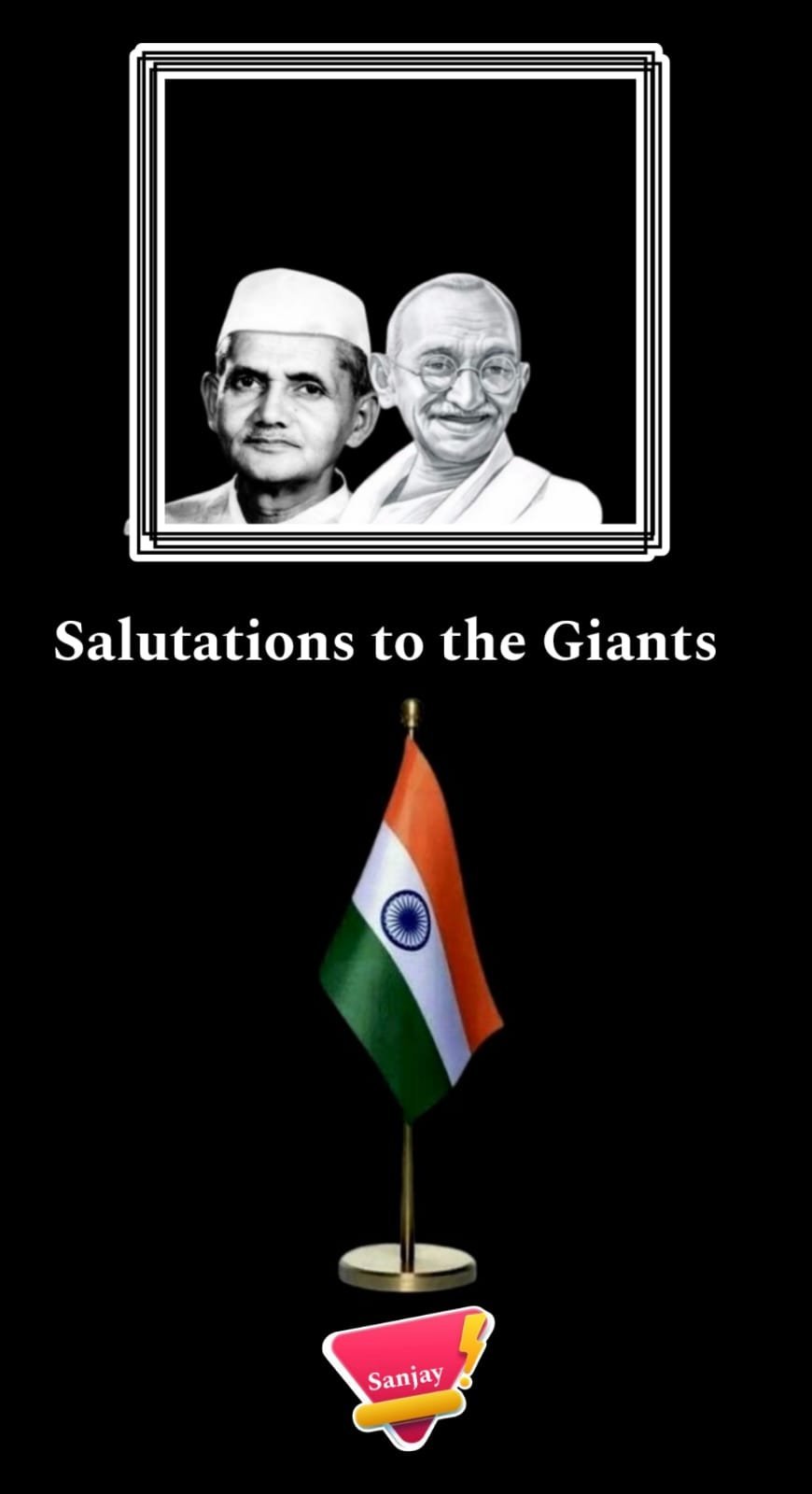
Sanjay Pattnayak
On this day, October 2, we celebrate the birth anniversaries of two stalwarts who shaped the very foundation of our nation—Mahatma Gandhi, the Father of the Nation, and Lal Bahadur Shastri, the exemplary Prime Minister who brought the nation together with his slogan “Jai Jawan, Jai Kisan.” Both men, through their unwavering dedication, not only led India to independence but also instilled values that continue to inspire generations.
However, it is unfortunate that as the years pass, the image of Mohandas Karamchand Gandhi, fondly known as Bapu, has suffered in the public eye. Blame and misinformation, often spread through the rapid mechanisms of social media, have tarnished the legacy of a man who dedicated his life to truth, non-violence, and the upliftment of the oppressed. Similarly, while Lal Bahadur Shastri’s contributions are cherished, his legacy is sometimes overshadowed by the towering presence of Mahatma Gandhi. Yet, both of these leaders were indispensable in shaping our nation.
The Fragility of Legacies in a Digital Age
Today, with the advent of social media, it has become easy to point fingers, spread rumors, and cast aspersions on figures from the past. Gandhi, a man who united a fragmented country through his principles of Satyagraha and Ahimsa, is often targeted. His critics, sitting comfortably in the present, fail to grasp the complexity of the time in which he lived. They forget that Gandhi was dealing with colonial oppression, communal strife, and the struggle for freedom, all while advocating for non-violence in a world consumed by war and hatred.
The real tragedy lies in how easily misinformation spreads. It is far easier to sit behind a screen and criticize than to truly understand the depth of someone’s contributions. Social media has amplified half-truths and distorted narratives, making it difficult for the youth to appreciate Gandhi’s true essence.
Lessons from Mythology: The Flawed Yet Noble Heroes
The tendency to overlook noble deeds and focus on perceived flaws is not new to us. It is deeply rooted in our culture, as evident in our mythologies. Take, for example, the stories of Purushottam Sri Ram, Sri Krishna, Vibhishan, and Dharmaraj Yudhisthir. Each of these figures, despite their immense contributions, faced criticism for their decisions. Sri Ram, the epitome of dharma, is often questioned for his treatment of Sita. Sri Krishna, the divine strategist, is blamed for bending the rules during the Mahabharata. Vibhishan is often labeled a traitor for siding with righteousness, while Dharmaraj Yudhisthir is judged for gambling away his kingdom.
Yet, in our rush to judge, we often forget their noble deeds and the larger principles they upheld. Sri Ram stood as a paragon of virtue, Krishna orchestrated the triumph of good over evil, Vibhishan chose dharma over family loyalty, and Yudhisthir was unwavering in his pursuit of righteousness. Like Gandhi and Shastri, they, too, faced circumstances far more complex than we can comprehend today.
These examples remind us of a fundamental truth:all human beings are fallible, and greatness does not mean perfection.
Walking in Their Shoes: A Call for Empathy
It is easy to blame Gandhi or other leaders from the past. But, how many of us have truly tried to understand the pressures and circumstances under which they operated? How many of us have taken the time to study their lives with an open mind, free from preconceived biases? We didn’t witness the horrors of colonial rule firsthand. We didn’t experience the communal riots or the agony of partition. We can’t even begin to fathom the burden Gandhi carried when he chose non-violence over hatred, knowing full well that people would question his decisions.
Lal Bahadur Shastri, too, lived in a time of great national upheaval. As Prime Minister, he took the reins of a newly independent nation, and his decisions during the Indo-Pak war of 1965 earned him the admiration of the people. Yet, even he is sometimes relegated to the background in historical discourse, overshadowed by the grand narrative of Gandhi’s life. This is not because his contributions were any less significant, but because we, as a society, often fail to give due credit where it is deserved.
A Call for Reflection and Change
In today’s world, we need to foster a culture of understanding and empathy. Instead of hastily blaming the leaders of the past, we should take the time to appreciate their contributions, study their lives, and reflect on the challenges they faced. Gandhi and Shastri, like Sri Ram and Sri Krishna, made decisions that shaped the destiny of millions. Their actions were guided by principles far greater than individual ambition—they were working for the soul of the nation.
As citizens of India, it is our duty to honour their legacy by embracing the values they stood for. Gandhi taught us the power of truth and non-violence. Shastri taught us the dignity of labour and the strength of unity. If we can imbibe even a fraction of these values, we will be able to bring about meaningful change in our society.
Conclusion: Protecting the Legacy of Our Leaders
We live in a time when it is easier to tear down than to build up. But, if we truly wish to honor the memory of legends like Mahatma Gandhi and Lal Bahadur Shastri, we must rise above the noise of misinformation and appreciate their contributions with a discerning mind. Let us remind ourselves that history is not just a collection of facts—it is a living narrative that shapes our identity as a nation.
So, on this day, let us pledge to protect the legacy of those who gave us the freedom and unity we enjoy today. Let us strive to understand their lives, their struggles, and their vision for India. In doing so, we will not only honour their memory but also build a future worthy of the nation they dreamed of.








